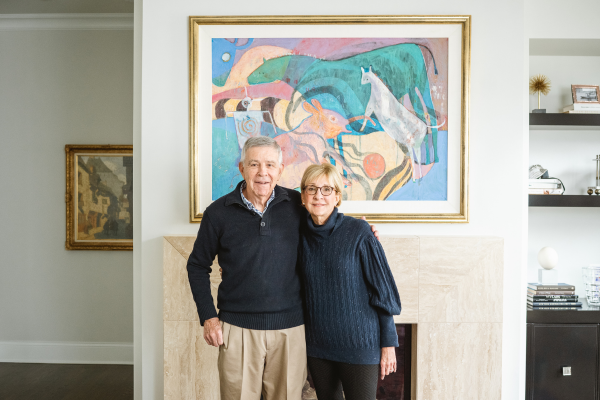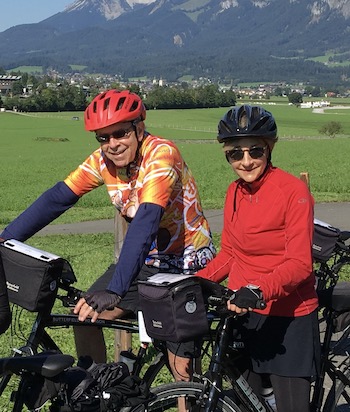Gift Supports Duke Ophthalmology Training Program

In the decades since Peter Holland, MD, completed his residency training at Duke Eye Center in 1975, he and his wife Merle have lived and worked in Boston, Washington, Houston, and Chicago. But no matter their address, they have always savored fond memories of Duke and Durham. “My experience at Duke was wonderful,” Peter says.
It was a special time for Merle too. “We made lifelong friends with the other residents,” she says. “It was an idyllic time for both of us.”
Now the couple are supporting the Duke Ophthalmology Training Program so that other residents can continue to have the same kinds of wonderful experiences. “We feel like we want to pay back to Duke some of what it gave to us,” Peter says.
The Hollands chose to make a planned gift through their will. “It was a way to give to Duke that allowed us to still have the funds until both of us have passed away and also reduce the taxation on our estate,” Peter says.
The funds from their gift will be used to support residents in activities that aren’t already supported financially by the department. For example, if a resident wants to travel to a conference to present a paper, the funds could be used to help pay for travel and hotel expenses.
“It’s something to help future residents,” Merle says. “We hope the excellence of the program continues for other people, because it was so instrumental in our lives.”
Peter, who grew up on Long Island and went to medical school in New York City, had heard about the excellent medical center at Duke. When he came down to interview in 1970, he was struck by the beauty of the area and by the friendliness of the faculty and residents. “All of the residents raved about the program,” he says. “I was accepted at several programs in New York, but when I got the acceptance letter from Duke, I knew that was where I was going.”
After completing his training at Duke, Peter did a fellowship in diseases and surgery of the retina at Massachusetts Eye and Ear Infirmary in Boston. He spent his career specializing in diseases and surgery of the retina. For 32 years, he was in private practice in Houston, while also serving on the faculty at Baylor Medical School, operating with residents and teaching. Peter also worked in a teaching capacity at Northwestern University Feinberg School of
Medicine, his most recent position, where he supervised residents providing emergency eye care.
Looking back, he feels that training at Duke set a standard of excellence for his entire career.
As Merle says, “When you train at an outstanding institution like Duke, those are the expectations you have for yourself and for other people. You know what you are looking for. No matter where you go in the country or what you do, there is a level of excellence that you expect.”

Peter says his Duke training instilled in him a strong ethos to be prepared, put the patient first, and be willing to discuss hard cases with colleagues rather than going it alone. “It’s important to know what you don’t know,” he says. “The greatest risk to patients is a physician who feels that they are all-knowing, and of course none of us are.”
Even though the training program was rigorous and time-consuming, Peter found the atmosphere to be supportive, with attendings and older residents generously sharing their knowledge and experience with the younger residents. In their free time, the couple enjoyed sharing meals with other residents in their homes. They also spent time at the Duke Faculty Club and ate an occasional meal at the former Oak Room on West Campus. While Peter was working, Merle cared for their baby boy and took classes at the University of North Carolina at Chapel Hill, on her way to eventually becoming a psychologist specializing in family therapy and children with learning issues.
The couple are now retired and living in Chicago. One son and his family live nearby, and another son and his family live in Charlottesville, Virginia. In retirement, Peter and Merle have more time to spend with their five grandchildren and pursue their hobbies, including bicycle trips in the United States and abroad. Retirement also spurred them to think about giving back.
“We were getting to a point in life where we had to give some thought to making charitable contributions, and first on our list was Duke,” Peter says. “We wanted to contribute, and they just made it so easy for us to do it. Like everything else I’ve done at Duke, it was a pleasure.”